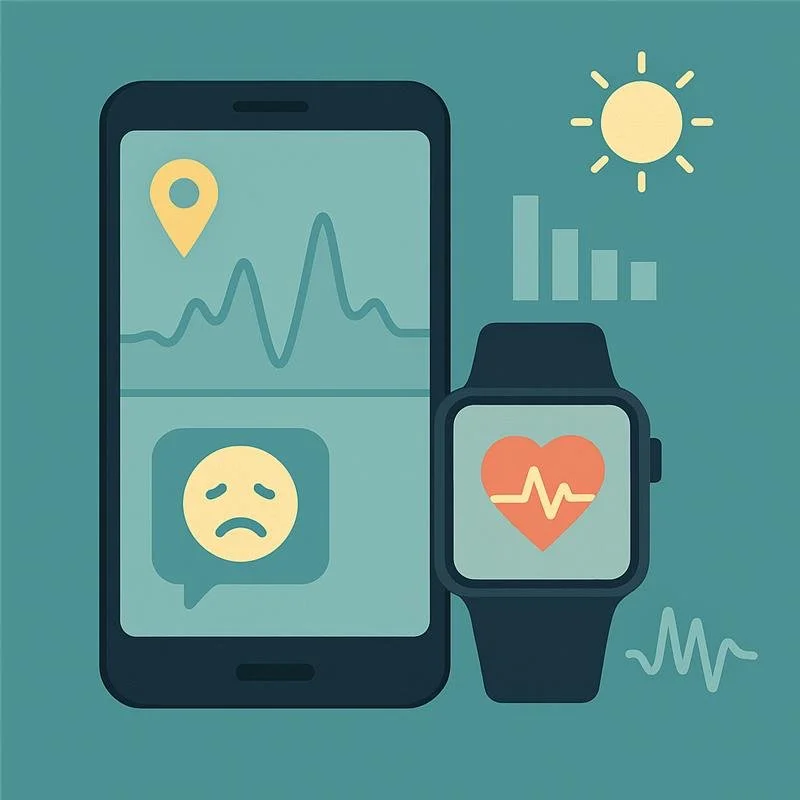What Can Mobile Devices Tell Us About How We Feel?
August 28th, 2025
Tina Coenen
Every day, our phones and smartwatches quietly collect data about how we move, sleep, and interact with the world. But what if those digital traces could also reveal how we are feeling—and even warn us about mental health problems?
We brought together findings from 52 studies on how mobile and wearable devices can support “just-in-time” (JIT) prediction of depression.
The idea is simple but powerful: instead of waiting for symptoms to worsen into a full-blown depressive episode, technology might help spot early warning signs as they unfold in daily life.
What Signals Matter The Most?
We found that the following patterns stood out across many studies:
Location and mobility: Spending more time at home and visiting fewer places often coincided with worsening mood.
Sleep: Irregular sleep schedules and poor sleep quality were strong predictors of depression risk.
Activity: Lower levels of physical activity, or sudden changes in routine, also flagged concern.
Body signals: Heart rate variability (HRV), electrodermal activity (EDA), and skin temperature offered clues about stress, circadian rhythm, and emotional well-being.
Importantly, our review showed that combining these “passive” signals with brief self-reports of mood or sleep quality produced the most accurate predictions.
A heart-rate spike, for example, might mean stress, excitement, or exercise—only context from the person themselves can distinguish between different meanings.
From Data to Timely Support
The ultimate goal is to use these insights to deliver support at the right moment—whether that means prompting a quick check-in, encouraging rest, or alerting a clinician. Personalized models, which learn each individual’s unique patterns, were especially promising, often outperforming one-size-fits-all approaches.
Promises and Challenges
This technology is not without hurdles. Battery life, privacy concerns, and the need for more diverse study populations all limit current progress. Still, the field is moving quickly: most of the reviewed studies were published in just the past five years.
The review concludes that mobile and wearable data, especially when combined with self-reports, can meaningfully improve our ability to predict shifts in depression. In the long run, this could help transform mental health care from reactive to proactive—offering support at the earliest signs of relapse.
These findings are based on research conducted by Yannick Vander Zwalmen, Matthias Maerevoet, Tina Coenen, Kristof Hoorelbeke, Stephanie Chen, Mathias De Brouwer, Marie-Anne Vanderhasselt, Sofie Van Hoecke, Klaas Bombeke, Rudi De Raedt, and Ernst HW Koster.
Did this study spark your interest? Read the preprint here and don’t hesitate to contact us with any thoughts or questions via Tina.Coenen@UGent.be.

